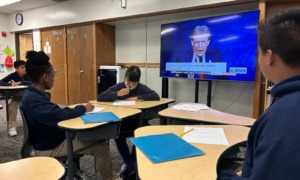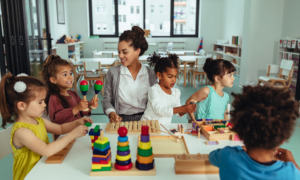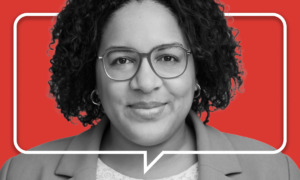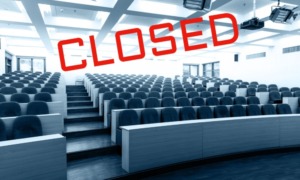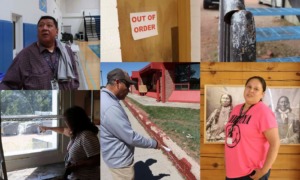 Close your eyes and imagine this: You are a parent of a black teenaged boy, one who gets in trouble from time to time, as all teenagers do, and you live in a high-crime neighborhood. You worry about your teen being confronted by the police, maybe for a transgression or maybe for nothing at all. A confrontation that, at best, is humiliating and fear-inducing.
Close your eyes and imagine this: You are a parent of a black teenaged boy, one who gets in trouble from time to time, as all teenagers do, and you live in a high-crime neighborhood. You worry about your teen being confronted by the police, maybe for a transgression or maybe for nothing at all. A confrontation that, at best, is humiliating and fear-inducing.
Even worse, you worry about your son becoming the victim of an assault, perhaps even getting killed. You know other families who have lost teens to violence, and you know survivors, too.
Now imagine being the teenager. Would you be worried about being victimized by others in your community, at your school or by the police?
Like the rest of us, teens, especially teens of color, know that a face-to-face with police officers can often take a bad turn and result in harm. They know about Eric Garner, whose minor transgression — selling loose cigarettes — ended in his death. They have seen the footage of Walter Scott being shot as he ran away after being stopped for a broken tail-light.
And, while the facts are still being debated, and probably always will be, they know about Michael Brown, a teen who may have looked like them. His case shows that a confrontation between police and community can turn deadly in seconds, as it did with Freddie Gray.
Imagine yourself as one of these individuals. Or imagine yourself as one of the nearly 149,600 innocent individuals stopped and frisked in New York City last year. How does this make you feel?
Now, imagine this. You are a police officer. You patrol that same imaginary high-crime neighborhood. You have a family of your own, you worry about falling victim to violence while on the job. How would you feel going into a heated situation or down a dark alleyway when there is a report of a crime in progress?
As an officer, you know that on Dec. 20 Ismaaiyl Brinsley fatally shot two New York City police officers while they sat in their patrol car. You also know that hours after officers Rafael Ramos and Wenjian Liu were murdered, an officer in Tarpon Springs, Fla., was shot and killed while responding to a noise disturbance.
In all this darkness, here is a small piece of good news about human nature: If you can imagine yourself as one of those affected by recent violence and can share in those feelings of fear, anger, anxiety and other emotions, then you have succeeded at empathy. Empathy is the ability to recognize the feelings of others and share in those feelings; you are able to “walk in someone else’s shoes.”
Empathy is difficult. As a childless 32-year-old white male from a middle-class background, I try, but I know I cannot fully imagine the struggle of a young black male from a poor inner-city neighborhood or of his parents. As a criminologist, I study crime (mostly) from behind a desk. I am not on the street like a police officer. So I cannot fully grasp the fear and anxiety they face.
Empathy is what we need right now. If more of us are able, just for a moment, to empathize with the police and with those who confront the police, we might be able to move forward. Empathy reminds us not to blame cops, but instead to try to better understand the situations that police face.
Empathy tells us not to blame protesters for responding with sadness and anger to tragic violence. While a few incidents in Baltimore show that violence is one possible outcome from the pain experienced in many communities, there were far more acts of peace, collaboration and peaceful dialogue. Oft-ignored by major media outlets, there were more interactions of empathy than violence.
In my own research, I have seen that empathy makes a difference: It can help improve perceptions of the police and reduce violence.
While meaningful policy and structural shifts are critical toward making real progress in police-community relations, none of that can occur if we endlessly point fingers, blame others and vilify anyone we don’t agree with. We must empathize and create a mutual understanding. The police cannot do it without the community and the community cannot do it without the police.
Police in Massachusetts are recognizing the importance of this and designing training courses to increase officer empathy. Researchers have outlined other concrete steps in an effort to increase trust between the police and the community.
For instance, Harvard’s Kennedy School recently released a report by Sue Rahr and Stephen K. Rice setting the foundation for a shift in policing from “warriors” to “guardians” of public safety and justice. It is through this understanding and collaboration that we can work together to make things better and, hopefully, reduce all violence in society.
Chad Posick is an assistant professor at Georgia Southern University and a member of the Scholars Strategy Network.











